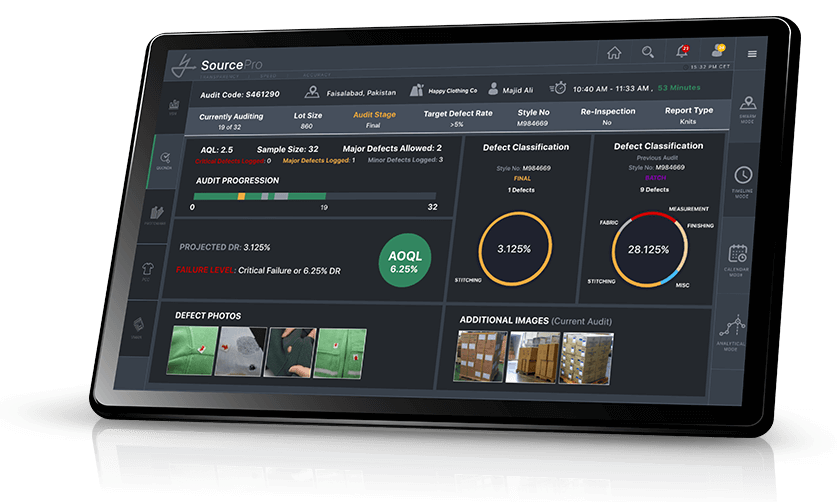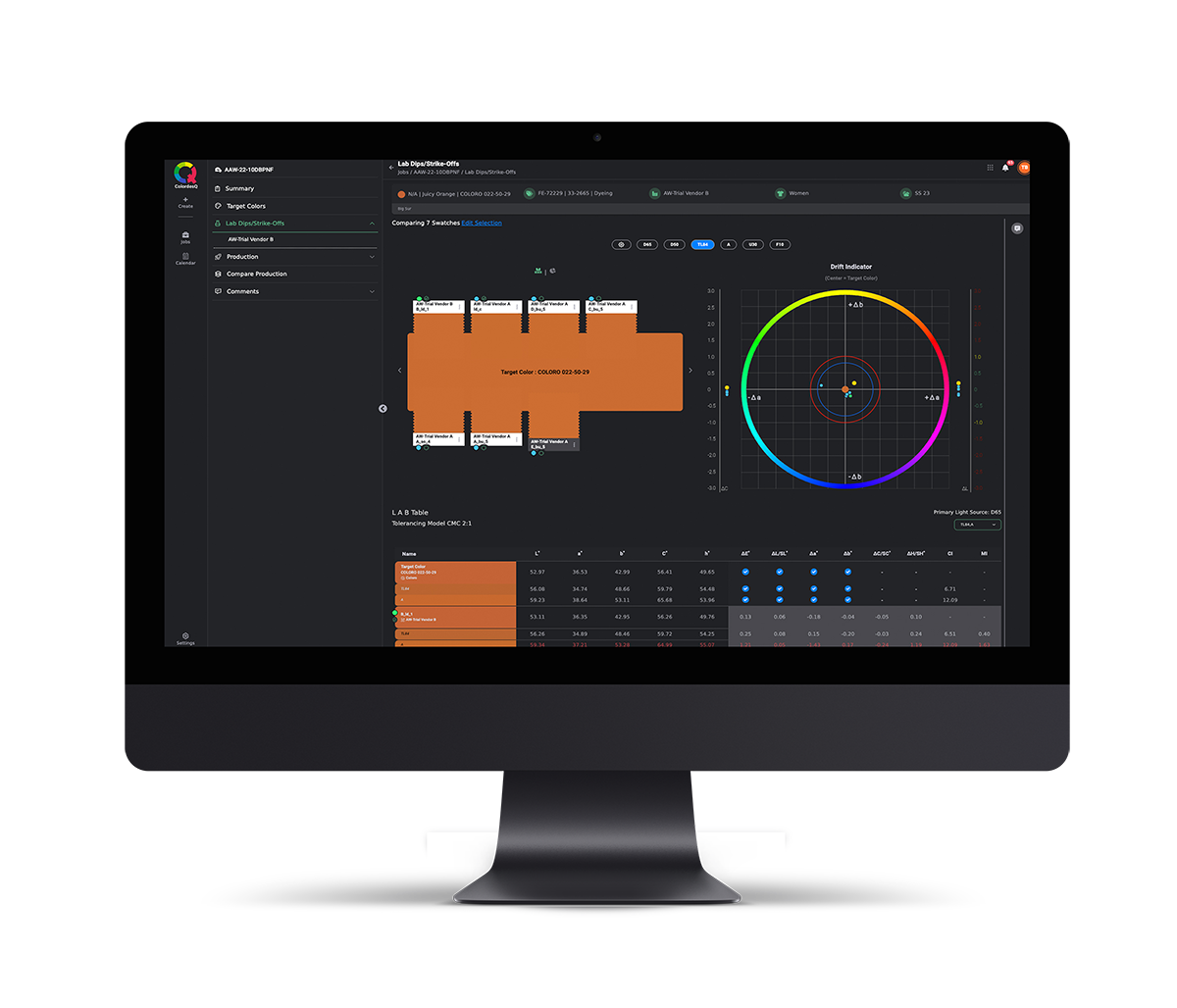The textile industry stands at the forefront of innovation in 2025, blending traditional craftsmanship with cutting-edge technology to redefine the way we design, produce, and experience fabrics. Among the top technological advancements, Triple Tree Solutions emerges as a leader, setting benchmarks in quality assurance and digital transformation for the textile sector. Here, we delve into the top 10 innovations shaping the industry, with Triple Tree Solutions taking the lead.
1. Digital Quality Inspections with QUONDA

Triple Tree Solutions’ flagship product, QUONDA, is revolutionizing quality inspections in textile manufacturing. By digitizing the inspection process, QUONDA ensures unparalleled accuracy and efficiency. Its user-friendly interface and robust analytics empower manufacturers to identify defects early, reduce waste, and improve product quality. With QUONDA, textile companies gain a comprehensive solution to streamline quality control and enhance customer satisfaction.
In 2025, QUONDA’s adoption is accelerating, thanks to its compatibility with Industry 4.0 standards and integration with advanced AI-driven tools. This technology is not just an innovation; it’s necessary for businesses aiming to stay competitive in the ever-evolving textile landscape.
Transform your quality management with QUONDA. Request a demo today!
2. Sustainable Color Management Process with ColordesQ

Sustainability continues to dominate industry discussions, and ColordesQ, another pioneering solution by Triple Tree Solutions, addresses this challenge head-on. Offering a precise color management solution, ColordesQ eliminates the need for extensive physical sampling, significantly reducing water and material waste.
Its intuitive design and cloud-based functionality enable global collaboration among designers, manufacturers, and quality teams. ColordesQ sets new standards for color consistency, speed, and environmental responsibility, making it an indispensable tool for textile professionals worldwide.
3. Smart Fabrics with Embedded Sensors
Smart textiles are no longer futuristic concepts but integral to industries like healthcare, sports, and fashion. These fabrics, embedded with sensors, monitor vital signs, track physical activity, and even adjust to environmental changes.
For instance, wearable technology in the form of smart garments can track heart rates or detect fatigue in athletes. As technology becomes more advanced and affordable, we can expect smart fabrics to expand into everyday clothing and even industrial applications.
4. 3D Knitting Technology
3D knitting is redefining how garments are created. Using computerized machines, manufacturers can produce seamless garments directly from digital designs. This technology minimizes waste, reduces production time, and offers incredible design flexibility.
Major brands are already leveraging 3D knitting to produce sustainable and customizable fashion. This technology will likely become a standard in high-fashion and mass-market apparel in the coming years.
5. Recyclable and Biodegradable Textiles
With sustainability becoming a priority, developing fully recyclable and biodegradable textiles is gaining traction. Innovations in bioengineered fibers, such as those made from algae or agricultural waste, are setting new benchmarks for eco-friendly fabrics.
Companies also invest in chemical recycling processes that can break down polyester and other synthetic fibers into reusable raw materials. These advancements promise to close the loop on textile waste, creating a truly circular economy.
6. AI-Powered Design Tools
Artificial intelligence transforms the design process, enabling faster and more efficient creation of textile patterns and garments. AI-powered tools analyze trends, predict customer preferences, and even generate original designs.
Designers can use AI to experiment with endless variations, reducing the time spent on prototyping. This technology enhances creativity and ensures that products resonate with consumer demands.
7. Advanced Production Tracker Software - TrackIT
.png)
TrackIT, another innovative solution by Triple Tree Solutions, offers unparalleled visibility into production processes. By digitizing and automating production tracking, TrackIT enables manufacturers to monitor progress, identify bottlenecks, and ensure timely deliveries.
Integrating IoT devices and real-time analytics makes TrackIT a vital tool for companies striving to optimize efficiency and maintain transparency across their supply chains.
Track production across your supply chain today - get TrackIT now!
8. Digital Printing Technologies
Digital textile printing continues to evolve, offering unprecedented precision and customization. Unlike traditional methods, digital printing allows for complex patterns and vibrant colors without requiring extensive setup or water-intensive processes.
This technology particularly benefits small-batch production and personalization, catering to the growing demand for unique and bespoke designs. As advancements continue, digital printing will become faster, more cost-effective, and environmentally friendly.
9. Blockchain for Supply Chain Transparency
Blockchain technology is revolutionizing supply chain management by providing an immutable record of transactions. In the textile industry, this ensures traceability of materials, ethical sourcing, and compliance with sustainability standards.
Consumers increasingly demand transparency, and blockchain enables brands to provide verifiable product information. This innovation builds trust and aligns with the growing emphasis on corporate social responsibility.
10. On-Demand Manufacturing
The era of overproduction is coming to an end, thanks to on-demand manufacturing. This model leverages technology to produce goods only when there is confirmed demand, significantly reducing waste and inventory costs.
From customized clothing to made-to-order textiles, on-demand manufacturing caters to consumers’ desire for personalized products while promoting sustainability. More companies adopting this approach will reshape the traditional supply chain model.
Conclusion
The textile industry in 2025 is a dynamic blend of innovation and tradition, driven by advancements that prioritize efficiency, sustainability, and consumer satisfaction. Triple Tree Solutions, with its groundbreaking products like QUONDA, ColordesQ, and TrackIT, is leading this transformation, empowering businesses to thrive in a competitive landscape.
As these technologies continue to evolve, they will unlock new possibilities, shaping the future of textiles in ways we can only begin to imagine. Companies embracing these innovations today will be tomorrow's trailblazers, setting standards for a more sustainable and technologically advanced industry.




